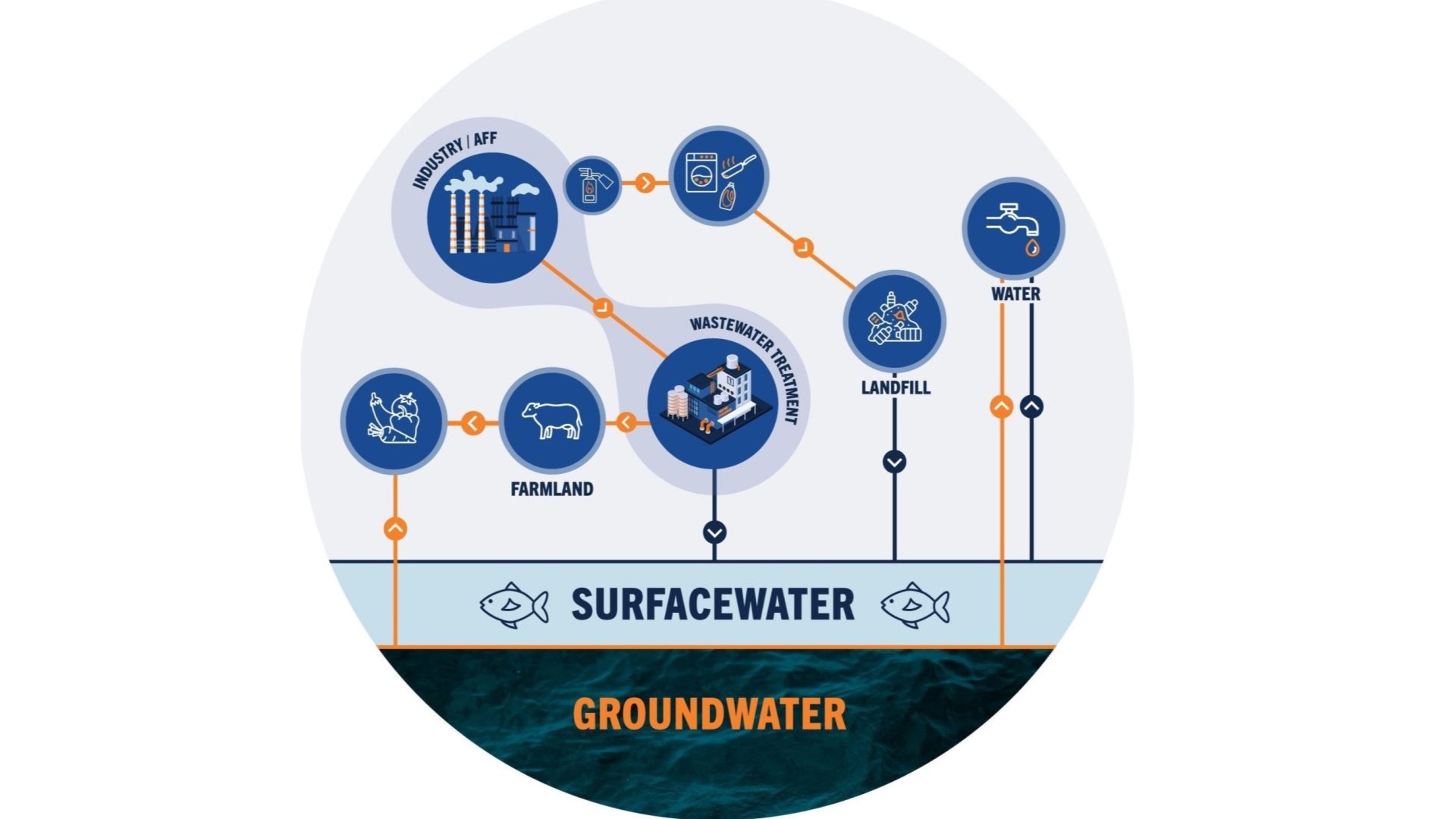The water sector isn’t immune to the turbulent and changing world. Currently, it’s experiencing a series of challenges – including: high energy costs, anxieties around future water supply, pollution, the demands for reusing and recycling water, and the increase in annual adverse weather, such as droughts and floods. And – it goes without saying – that ensuring water supplies are of the highest quality is always the greatest priority.
Hannah Poulson, Cluster Director of the Waters division at Eurofins Food & Water Testing UK, shares her expert insights into how the industry can ensure quality is continued to be achieved, and explains the latest innovations and solutions within this sector:
While the industry has its own very unique challenges – all of which are important to appropriately address and manage – one of the obstacles is the need to monitor and safely remove environmental contaminants, such as PFAS.
Per- and Poly-fluorinated Alkyl Substances (PFAS) have been widely discussed in both industry journals and the wider news for a number of years. The findings of international research highlight the significant global scale of the problem, including traces of PFAS that are starting to appear worldwide in both drinking water and food products.
Due to this, there’s increasing global concerns about the potentially harmful long-term effects that these chemicals can have on human health. But due to its presence being a relatively new challenge within the sector (and unlike any other contaminant that’s threatened the quality of our water supplies previously), there’s no fixed or uniform solution – so, working collaboratively to tackle this is essential.
The European Environment Agency has published reports indicating that ingesting PFAS can lead to health problems such as liver damage, thyroid disease, obesity, fertility issues and cancer. Due to these potentially harmful effects, many countries are taking a proactive approach and implementing new legislation. Earlier this year, the EU introduced Commission Regulation (EU) 2022/2388 and Directive (EU) 2020/2184 to limit human exposure to harmful amounts of PFAS in drinking water.
The UK is exempt from all new EU legislation and so is researching this field independently via the Committee on Toxicity – as better understanding is required surrounding the consequences that these chemicals can have (or are having) on humans and the environment. Due to the wide-ranging scope of use and the large number of individual PFAS chemicals, our current knowledge of the impact of each one is still limited, restricting the ability of our government bodies to advise on appropriate legislation.
However, there’s significant guidance emerging – driven by the proactive work of the Drinking Water Inspectorate (DWI) – encouraging UK utility companies to be prepared: proactive with testing, ready for any legislation that might be introduced, and ensuring that they’re doing the right thing.
Whilst testing for PFAS does take place, there is still the significant challenge of removing and safely disposing of these compounds when identified. This highlights the infancy of this issue, that we have a significant way to go in being able to implement a long-term solution, and the importance for companies to seek expert support.
To date, we’re already seeing fantastic innovation and focus within the water utility industry alongside its supply chain in the development and reutilisation of technology to support this work.
But unfortunately, other than those within the industry, the knowledge of PFAS is limited in the UK. As professionals within the sector, we have a duty to spread the message amongst businesses within the supply chain, decision makers and the general public to ensure universal understanding and fully-informed decision making. Other countries are way ahead of us currently, but if people aren’t aware of the problem, then they can’t understand the solution.
One of the most recent advancements that is enhancing this sector is Sorbisense – a passive water monitoring, sampling and analysis system. Traditional water sampling techniques are complicated and time consuming, which can also mean they’re costly too. Worst of all, they provide either only snapshots of polluted areas or need expensive sampling stations which require infrastructure and maintenance.
But Sorbisense technology accumulates average concentrations of solutes over longer periods of time, boasts low initial and maintenance investments, and can save up to 70% of the time normally spent in the field.
At Eurofins Food & Water Testing UK we’re proud to deliver this next generation of passive samplers. Able to offer the full solution from dedicated field sampling systems and know-how to a wide suite of accredited laboratory tests.
Plus, our European Eurofins partners in Sweden and Denmark have been leading figures in PFAS research and analysis for over 20 years, supporting the positive steps that these countries are now taking. We’re excited to collaborate with our teams of global experts, committed to finding suitable solutions and implementing innovative initiatives to continually improve the quality of our water.



